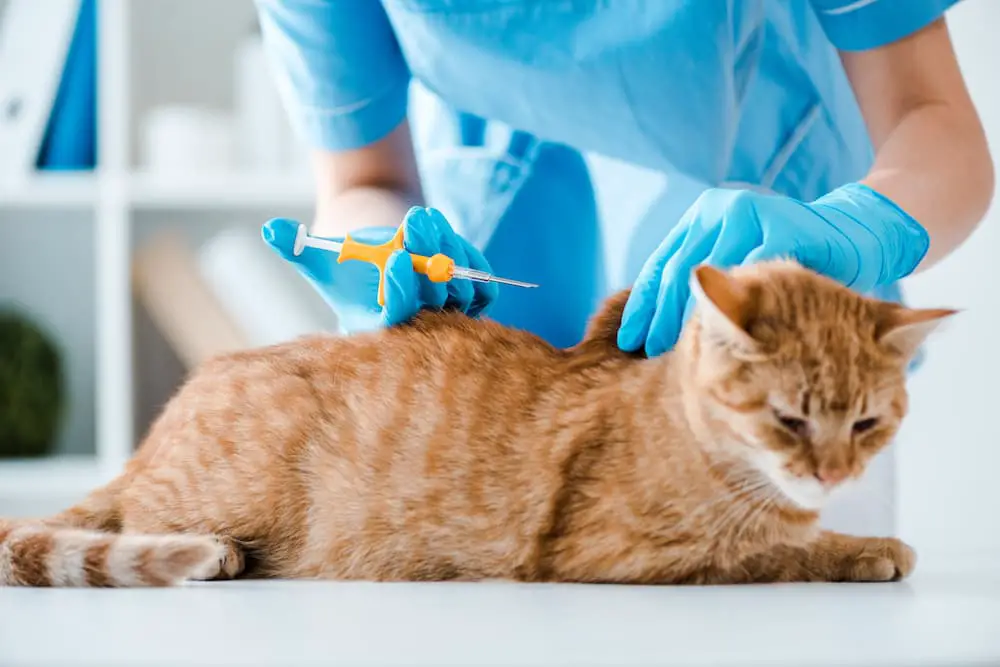
Cats are territorial critters and don’t like change, especially a change of place. If they could, they would probably like to stay in the comforts of a familiar territory. A new house will most likely make your kitty feel uneasy because of all the unknown and unexplored areas.
When moving to a new home, you have to be sensitive to your cat. If it is stressful for you, it’s even more stressful for them because they have no idea what’s happening.
What to look out for:
It’s easy to overlook a cat’s change in behavior because it sometimes happens gradually. You might say it’s because of one thing, or you might not even notice it at all. When you move to a new home with your cat, watch out for these signs of stress:
- loss of appetite
- excessive grooming
- less interaction with you or other family members
- always hiding
- aggression
- not using the litter box
Not all cats manifest the same signs, but as the parent, you can tell if something is unusual. Knowing these signs can help you prevent any further stress and damage to your cat.
 How you can prepare your cat for a new home:
How you can prepare your cat for a new home:
Your motto for your cat should be “be prepared.” Here are tips on how to help your cat get comfortable in the new home.
Before the move:
- If you are flying your cat, let him become familiar to his carrier. You might want to set it out days or weeks in advance to give your cat some time to get used to it. You can place treats in it, or you can feed your cat in the carrier.
 If you’re traveling by car, try bringing kitty in it a few times, and maybe even go for a ride. Bring in familiar objects in the car to reduce any anxiety. If the new location is near, you can arrange visits with your cat before the move.
If you’re traveling by car, try bringing kitty in it a few times, and maybe even go for a ride. Bring in familiar objects in the car to reduce any anxiety. If the new location is near, you can arrange visits with your cat before the move.
- Put out moving boxes in advance as well. You want to do things gradually and not suddenly so as not to surprise your cat.
- Avoid sudden changes in routine. Try to keep the usual feeding time and play time. To avoid the mistake of forgetting or postponing meals, try using an automatic cat feeder and a cat water fountain. That way, your cat can help itself eat the food when it’s hungry.
However, remember that every new thing for your cat might cause stress or anxiety. That said, introduce it gradually until your cat is used to it.
First day in the new home:
- If you see that it’s alright, try carrying the cat around the new home. Show the cat where the bed, the litter box, and the feeding bowl are.
- If the house isn’t ready and you have movers carrying furniture and boxes all around, bring the cat away from the hustle.
- You can set out the litter box in a safe room and keep the carrier in the room as well. Make sure the space is safe and enclosed to avoid the cat from running away.
- If you have other family members, make sure they are warned about the cat’s anxiety as well. Consistency is important to reduce the cat’s stress and anxiety levels.
 Following days and weeks:
Following days and weeks:
- Be patient with your cat. It will take days or weeks for it to adjust to the new environment. Don’t force anything. For example, you can sit on the floor and let it come to you, rather than grabbing it.
- Be consistent with routines.
- Let them explore new places in their own time. If they want to hide under the bed, that’s okay. Try to make it feel like it’s a safe place.
- If your cat loved being outdoors, the move might change that. Avoid letting it wander on its own because it is a new place. Your cat is the “new cat” on the block, and we don’t know what territorial issues are going on.
 Summary
Summary
Generally speaking, cats take time to adjust to new things. Whether it’s a new home, a new object or a new person, you need to allow them some time to get familiar. Moving to a new house is especially stressful for them, so be mindful of unusual behaviors.
Proper and early preparation is your best bet to avoiding stress and anxiety. If your cat continues to show signs of stress or other unusual behavior, consult your vet.
About the author:
My name is Lauren. I am the founder of lovablepawsandclaws.com. I’m a young woman with a real passion for animals. I have kept many pets over the years and have intimate knowledge of their needs both emotionally and physically. My dogs keep me active and satisfy my desire to spend lots of time in nature.








